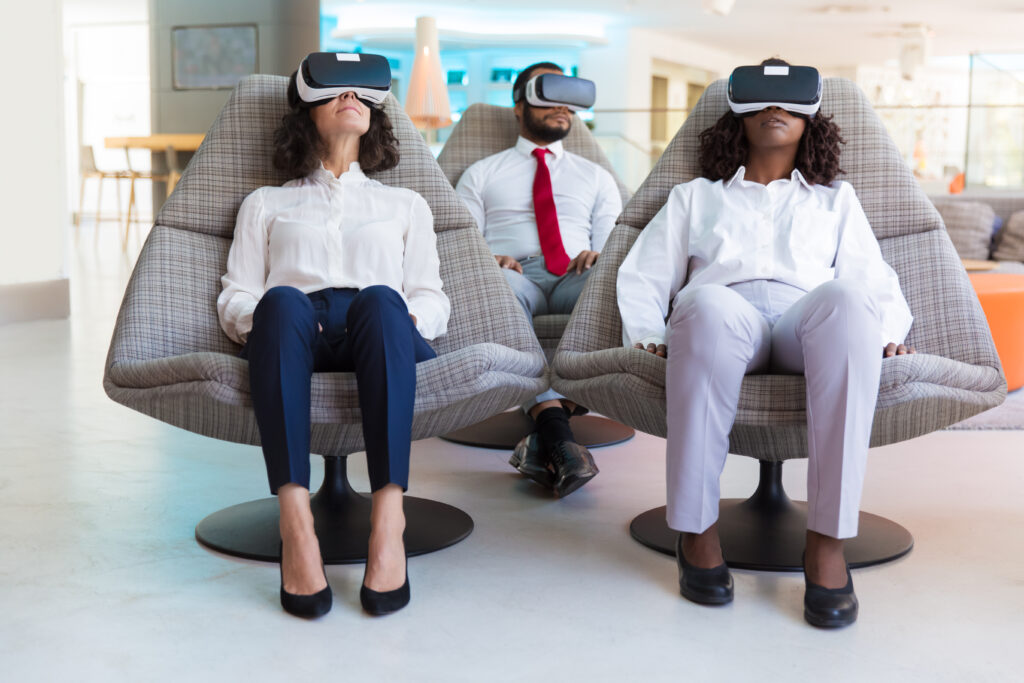Discover how Virtual Reality revolutionizes recruitment, marketing, and training in businesses. Unlock innovative strategies for growth.
The integration of virtual reality (VR) technology is reshaping the way companies operate across various sectors. From revolutionizing recruitment processes to redefining marketing strategies and enhancing employee training, VR has emerged as a powerful tool driving innovation and efficiency.
Let’s delve into how VR is making significant impacts on businesses worldwide.
Enhanced recruitment strategies
The quest for top talent is a perpetual challenge for businesses. Traditional recruiting methods often fall short in assessing candidates’ suitability and cultural fit. However, VR offers a solution by providing immersive experiences that give applicants insights into company culture and job roles. For instance, companies like TTec are leveraging VR to offer simulated office visits, enabling candidates to gauge compatibility and evaluate necessary skills. By reducing costs and expanding remote recruiting efforts, VR not only streamlines the hiring process but also attracts high-caliber talent.
Innovative marketing approaches
In the realm of marketing, VR presents boundless opportunities to captivate audiences and forge memorable brand experiences. Whether through interactive product demos or immersive storytelling, VR enables businesses to showcase their offerings in unprecedented ways. Burgess Yachts’ use of VR for 360-video tours exemplifies how companies can transcend physical limitations and engage customers on a deeper level. Moreover, brands like Fox and Toms Shoes have leveraged VR to create immersive narratives, fostering emotional connections and brand loyalty. With its ability to heighten engagement and extend viewing time, VR emerges as a game-changer in marketing strategies.
Effective workforce training
The efficacy of employee training is paramount for organizational success. VR’s immersive nature offers a dynamic learning environment for honing technical skills and fostering behavioral competencies. Companies are leveraging VR to simulate real-world scenarios, from operating heavy machinery to enhancing interpersonal skills. Hilton Hotels and Resorts’ adoption of VR training underscores its transformative impact on employee performance and operational efficiency. By reducing training times and improving information retention, VR emerges as a cost-effective solution for upskilling the workforce.
Collaborate with Kalles Group to upskill your team
The transformative impact of virtual reality (VR) on businesses cannot be overstated. From revolutionizing recruitment strategies to redefining marketing approaches and enhancing workforce training, VR has become a cornerstone of innovation and efficiency in the modern business landscape. As companies strive to keep pace with technological advancements, investing in digital upskilling has become imperative.
At Kalles Group, we understand the importance of equipping teams with the skills needed to thrive in a digital-first environment. Our digital upskilling services offer specialized training programs and resources tailored to meet the evolving needs of the modern workplace. By leveraging our expertise, organizations can empower their teams with the knowledge and capabilities required to excel in today’s competitive market.
Whether it’s enhancing technical proficiencies or fostering adaptive mindsets, our training programs are designed to be relevant, engaging, and aligned with contemporary practices. With a commitment to driving innovation and excellence, Kalles Group ensures that businesses are well-equipped to navigate the challenges and opportunities presented by rapid technological advancements.
Embracing VR and investing in digital upskilling is not just a strategic decision but a fundamental necessity for organizational success. To learn more about how Kalles Group can help elevate your team’s skills and capabilities, we invite you to request a free consultation. Together, let’s embark on a journey towards achieving digital excellence and driving sustainable growth in the digital age.
